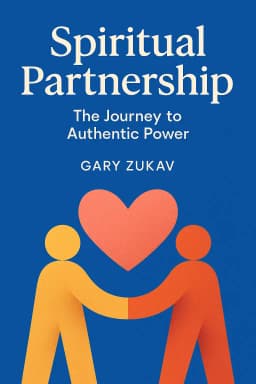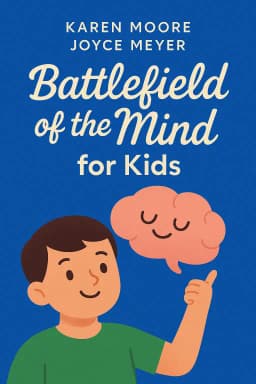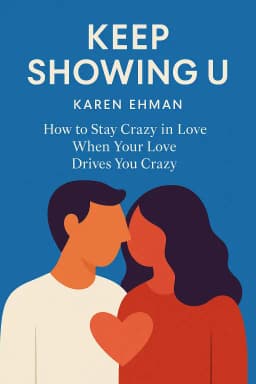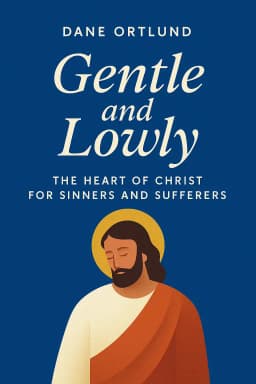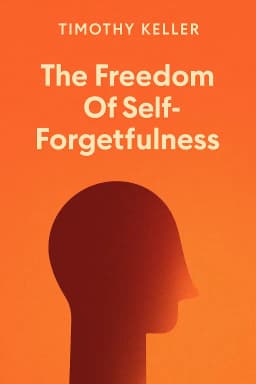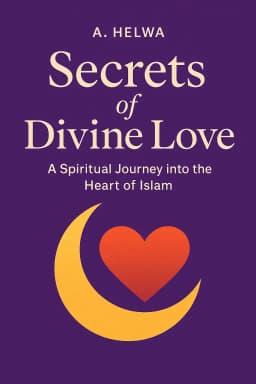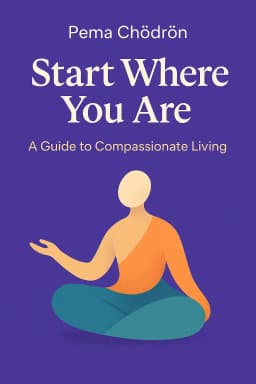
The God Who Talks Back
An Uncommon Dialogue
Golden Hook & Introduction
SECTION
Daniel: Most people pray by asking for things. A promotion, better health, a parking spot. What if the most powerful prayer isn't asking for anything at all, but thanking for what you don't yet have? Sophia: That sounds like a complete paradox. Thank you for the million dollars I don't have? It feels like you’re just lying to the universe. Daniel: It feels that way, but it’s the central mechanism in a book that was a true publishing phenomenon. It stayed on the New York Times bestseller list for 137 weeks. Today, we’re diving into Conversations with God, Book 1 by Neale Donald Walsch. Sophia: I’ve definitely heard of this one. It’s one of those books that people either swear changed their life or warn you to stay away from. Daniel: Exactly. And what makes it so fascinating is its origin story. Walsch wasn't some enlightened guru on a mountaintop. In the early 90s, his life had completely fallen apart. A fire took all his belongings, his marriage ended, and he was in a car accident that left him with a broken neck. He ended up homeless, collecting cans to eat. Sophia: Wow. So this book wasn't born from wisdom, it was born from absolute desperation. Daniel: Total desperation. At his lowest point, he sat down and wrote an angry, anguished letter to God, demanding to know why his life was such a failure. And as he finished writing his last question, he says a voice answered him in his mind. A voice that was warm, kind, and witty. Sophia: Hold on. So he's literally claiming he's taking dictation from God? That's a massive claim. How did the world not just dismiss him as completely delusional? Daniel: Many people did, and the book is still hugely controversial in religious circles. But Walsch is careful to say he’s not a prophet. His famous line is, "This book was not written by me, it happened to me." He sees himself as a messenger for a very different kind of God. And that new vision of God is the first radical idea we have to understand.
The Premise: A God That Talks Back (And Isn't What You Expect)
SECTION
Sophia: Okay, so what kind of God shows up to answer an angry letter from a homeless man? Daniel: Not the one most of us were raised to imagine. This God isn't a distant, judgmental patriarch in the sky. This God is presented as an intimate, non-judgmental friend. There's no hell, no sin in the traditional sense, and no punishment. In fact, this God has a sense of humor. Sophia: A God with a sense of humor? That alone is a departure. But no sin, no hell? That dismantles the foundation of several major world religions. Daniel: Completely. And the book's most revolutionary claim is that this communication channel isn't special. It’s not reserved for saints or prophets. The book quotes God as saying: "I talk to everybody. The good and the bad. The saint and the scoundrel. And certainly all of us in between." Sophia: I can see why that would be so appealing. It democratizes the divine. You don't need a priest or a special building; you just need to be willing to listen. But what does this God actually say? If there are no rules and no judgment, what's the point of the conversation? Daniel: That’s the perfect question. The point isn't to give us rules to follow. The point is to hand us the instruction manual for reality itself. And the first rule in that manual is that we've fundamentally misunderstood how life works. Sophia: How so? Daniel: The book says we think we're here to discover our purpose, to find out what life has in store for us. But God’s main message is a total reversal of that. The core idea is: "Life is a creation, not a discovery." Sophia: That’s a great line, but it’s very abstract. What does it actually mean to create your life instead of discovering it? Daniel: It means shifting from being a character in the story to being the author of the story. The book says we are all creating our reality, every single minute, whether we know it or not. And we do it with three tools: our thoughts, our words, and our deeds. Sophia: Okay, the power of positive thinking. We've heard that before. But this sounds like it's on another level. Daniel: It is. It's not just about thinking positively. It's about understanding that thought is a literal creative force. The universe, according to the book, is like a giant Xerox machine. It doesn't judge what you're thinking; it just makes a copy of it and hands it back to you as your experience. Sophia: So if I'm constantly thinking, "I'm so broke, I never have enough money," the universe just says, "Copy that," and keeps me broke? Daniel: Precisely. And the book says all of our thoughts, words, and actions spring from one of only two possible emotions: love or fear. Fear is the energy that contracts, closes, and hides. Love is the energy that expands, opens, and reveals. Every single action you take is a vote for one or the other. Sophia: That’s a very simple, but powerful, binary. But it still leaves a huge question. If we're the creators, why do we create so much suffering for ourselves? Why do bad things happen to good people? Daniel: The book answers that with a beautiful and profound story. It’s called the Parable of the Little Soul and the Sun. Sophia: I’m intrigued. Tell me. Daniel: In the beginning, there was only light. All the souls were part of this great light, which was God. A Little Soul turns to God and says, "I know who I am. I am the light." But God points out that knowing you are the light and experiencing yourself as the light are two different things. When you're surrounded by nothing but light, you can't see yourself. Sophia: Right, there’s no contrast. You just blend in. Daniel: Exactly. So the Little Soul says, "I want to experience my magnificence!" And God explains that to do that, the soul must know darkness. It has to experience the opposite of itself. So, another brave soul agrees to go into the world and be the "darkness" for the Little Soul—to be the bully, the obstacle, the tragedy—so that the Little Soul can finally experience itself as forgiveness, as resilience, as the light. Sophia: Wow. That reframes everything. So the bad things, the "darkness" in our lives, aren't punishments. They are gifts from other souls, allowing us to experience who we really are. Daniel: It’s a radical perspective on suffering. It suggests that on a soul level, we've all agreed to play these roles for each other. The purpose of life isn't to avoid darkness, but to be the light in the darkness. And that brings us to how this philosophy applies to our biggest, messiest, real-world problems.
Redefining Life's Biggest Problems: Relationships, Money, and Suffering
SECTION
Sophia: Okay, let's get practical. The parable is beautiful, but how does this "creation, not discovery" model help someone who can't pay their rent or is in a toxic relationship? Daniel: The book tackles those head-on. Let's start with money. Walsch is struggling financially, so he asks God directly, "Why can't I attract enough money?" The answer he gets is that the problem isn't a lack of worthiness. It's a fundamental contradiction in our thinking. Sophia: A contradiction? What do you mean? Daniel: Most people, especially those who consider themselves "good" or "spiritual," hold a deep, often subconscious, root thought that money is bad. It's the root of all evil, it's corrupting, it's unspiritual. At the same time, they think of themselves as good. Sophia: I can see the conflict. If you think you're good and money is bad, you can't have it, because that would make you bad. Daniel: Exactly! You push it away unconsciously. Your thought "I need more money" is canceled out by your deeper thought "money is the source of evil." The Xerox machine of the universe gets both messages and produces a state of conflict: you get just enough to survive, but never enough to thrive. Sophia: That feels a little like victim-blaming, though. "You're poor because you have wrong thoughts." A lot of readers must have pushed back on that. Daniel: Oh, absolutely. It's one of the most criticized parts of the book. But the book's logic is consistent: you are the creator. To change your reality, you have to change your root thought. And the book's take on relationships is just as provocative. Sophia: I'm almost afraid to ask. What's the secret to a good relationship, according to God? Daniel: The book makes a statement that sounds completely insane at first. It says, "The most loving person is the person who is Self-centered." Sophia: Come on! Be selfish to be loving? That’s the opposite of every piece of advice ever given. Unpack that for me. Daniel: The logic is that you cannot give to another what you do not have yourself. If you don't see yourself as worthy, lovable, and whole, you will enter a relationship seeking those things from someone else. You're trying to fill a void. That's not love; it's a transaction. Sophia: So you become a sort of emotional vampire. Daniel: Precisely. The book argues that true love is when two whole people come together not to complete each other, but to share their completeness. The purpose of a relationship is not to see what you can get from another person, but to decide what part of yourself you'd like to see "show up" in the presence of another. It’s a sacred ground for creation. Sophia: That’s a huge shift in perspective. It puts all the responsibility back on you. Your relationship isn't about what your partner is or isn't doing; it's about who you are choosing to be. Daniel: Exactly. There are no obligations in a relationship, only opportunities. Every conflict, every moment of friction, is an opportunity to decide: Who Am I? Am I going to be kind right now? Am I going to be forgiving? Am I going to be the light? The ultimate question the book says to ask in any situation is, "What would love do now?"
Synthesis & Takeaways
SECTION
Sophia: So when you put it all together, you have this radical premise of a new kind of God, an operating system for reality based on creation, and a complete reframing of our biggest problems. Daniel: It's a total paradigm shift. It moves humanity from a position of being God's frightened, rule-following children to being God's creative partners. The core message is one of ultimate personal responsibility and empowerment. Sophia: It seems the book's ultimate point, whether you believe it's from God or just Walsch's own wisdom emerging from his suffering, is a call to stop waiting for life to happen to you. It's a demand to see yourself as the cause, not the effect. And that's both terrifying and incredibly freeing. Daniel: It is. Because if you are the creator, you can't blame anyone else. You can't blame your parents, your boss, or the government. Your life is a direct reflection of your own consciousness. Sophia: But the flip side is that if you don't like what you've created, you have the power to choose again. You can think a new thought, say a new word, and do a new thing. The canvas is never finished. Daniel: Exactly. And it leaves every reader with a powerful question: What would you do, think, and say differently if you truly believed you were creating your reality in every single moment? Sophia: That's a heavy one to sit with. We'd love to hear what you all think. Does this resonate, or does it feel too far-fetched? Let us know what bubbles up for you. Daniel: This is Aibrary, signing off.
